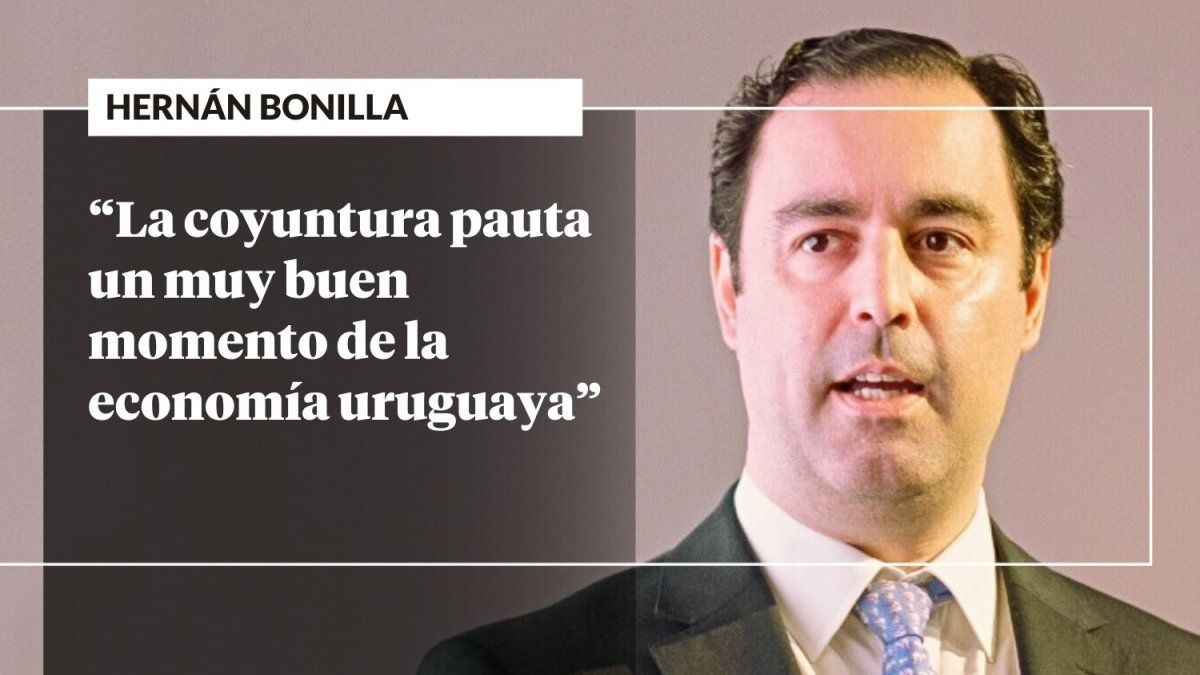2024 will close as a year of very good performance for the economy Uruguay, both in terms of growth and in other variables relevant to people’s quality of life. Once again it will be a year of growth employmentof the salary realhousehold income and consumption, as well as the exports of goods and services. However, it should also be noted that there are structural challenges that must be faced in order to put the country on the path to development, something that until now has eluded the entire continent.
The Uruguayan economy will probably have a growth rate in 2024 of around 3.5%, a good figure given that the average of the last decade is close to 1.2% and the long-term growth rate is somewhat higher. above 2%. The post-pandemic recovery, in this sense, has been positive, with a 2021-2022 biennium marked by growth driven by investment and exports and another 2023-2024 by the growth of consumption that has been reflected in more immediate improvements in higher indicators. social impact.
The performance of the labor market, both throughout the current government period and in 2024, has been especially positive; The current government will end its administration with around 100,000 jobs created, contrasting with the 56,000 destroyed in the previous five-year period, and with around 35,000 created in the current year. Likewise, the growth of real wages is almost 3% above the pre-pandemic level, reaching a historical maximum of almost half a century. He growth of the wage bill Due to its two components (real salary and employment) it is one of the recent developments, given that it is something that has not happened in the last decade.
The decline in inflation consolidated in 2024 is another positive development in the macroeconomic outlook of the Uruguay. In fact, the last data of the Consumer Price Index (CPI), the measure with which we usually follow the evolution of inflation, marks an increase of 5% in the last 12 months to November, which indicates that in the last 17 months the Central Bank of Uruguay met its target range for inflation, a fact that has never happened before in the more than 20 years that this system has been in use since 2002.
Central Bank of Uruguay building
Photo: BCU
The evolution of fiscal numbers should also be highlighted. Indeed, beyond the specific measures and the fact that, as usually happens, the end of the year will be better than what the fiscal deficit monthly in recent months, the structural fiscal deficit is one point of GDP better than at the end of 2019. More importantly, the markets recognize Uruguay’s good fiscal situation with a country risk at historic lows, the least of Latin Americaan improvement in position in all risk rating companies, public debt issues with historically low rates and significant savings in interest payments.
This evolution has been possible thanks to the establishment in 2020 of a new fiscal institutionalitywith a rule that establishes a limit on the increase in spending, debt and an analysis of the structural result. There is no doubt that, thanks to this mechanism, together with the creation of the Fiscal Advisory Council and the Expert Committee that follows these issues, the country moved towards consolidating better monitoring of this issue, of primary importance in macroeconomic stability that the country enjoys today.
orsi.jpg

There is no doubt, therefore, that the next government chaired by Yamandu Orsi who will take office on March 1 will take charge of an economy that is noticeably better than the one the current government found, in which job destruction was the agenda and the loss of investment grade was a real threat.
To complete the picture, it is also necessary to point out some structural challenges that the country must face to improve its long-term growth rate, an essential condition for development to be an achievable goal in a reasonable time horizon. From the Center for Development Studies (CED) At the end of 2023, we proposed the main measures that we understood should be adopted to make this possible, covering several sensitive areas.
First of all, it is necessary to advance in the opening of the economythrough new trade agreements (such as the one recently reached between the Mercosur and the European Union) and other unilateral measures, such as lowering tariffs and eliminating the consular fee. Likewise, exports where there are non-tariff barriers must be facilitated, such as personal hygiene products, which make these imported products significantly more expensive.
Secondly, the Competition in FMCG markets and inputs for companies that have particularly high prices. In particular, this should apply to fruits, vegetables, chicken and pigs. Also to fuel marketin which free import, marketing and distribution must be approved and in other products of great importance in national industries.
Third, there must be improved regulation laborwhose mother law dates back to World War II, incorporating a greater degree of realism in the negotiations. In this sense, salary negotiations must be decentralized to take into account the size of the company, its dynamism and location, among other variables. This would allow productivity to be taken into account as a fundamental parameter in determining salaries, a long-pending issue in our country.
Fourthly, it is essential to direct the modernization of the statereducing the number of public employees in administrative areas where more agile and less costly mechanisms must be generated for people and companies. In particular, new mechanisms must be established by which it is not necessary to wait months or years for a permit to begin operating or to complete a work. With the corresponding controls, these provisions would accelerate investment and job creation.
In short, the situation indicates a very good moment for the Uruguayan economy, but to respond to the welfare demands that will arise in the coming years, it is necessary to process some essential reforms. It should also be considered that the international economy will not be the most favorable, so the growth rate may be lower than the structural one in the coming years. Therefore, good indicators should not lead us to rest on our laurels, but rather to try to carry out the reforms we need with the characteristic ways of our idiosyncrasy.
Hernán Bonilla, president of the Center for Development Studies (CED).
Source: Ambito
I’m a recent graduate of the University of Missouri with a degree in journalism. I started working as a news reporter for 24 Hours World about two years ago, and I’ve been writing articles ever since. My main focus is automotive news, but I’ve also written about politics, lifestyle, and entertainment.




